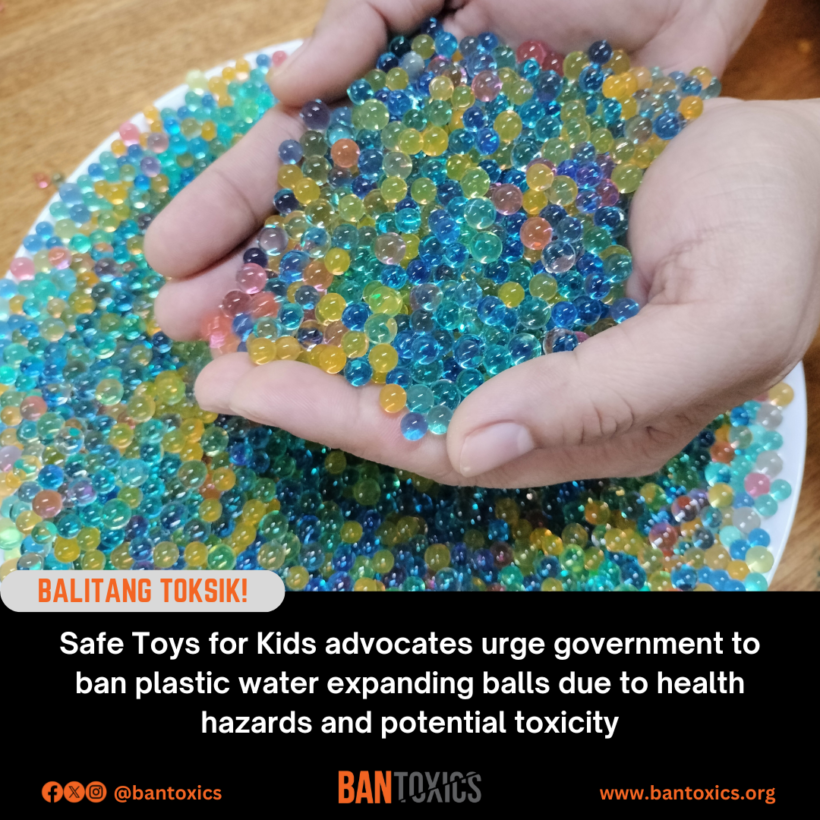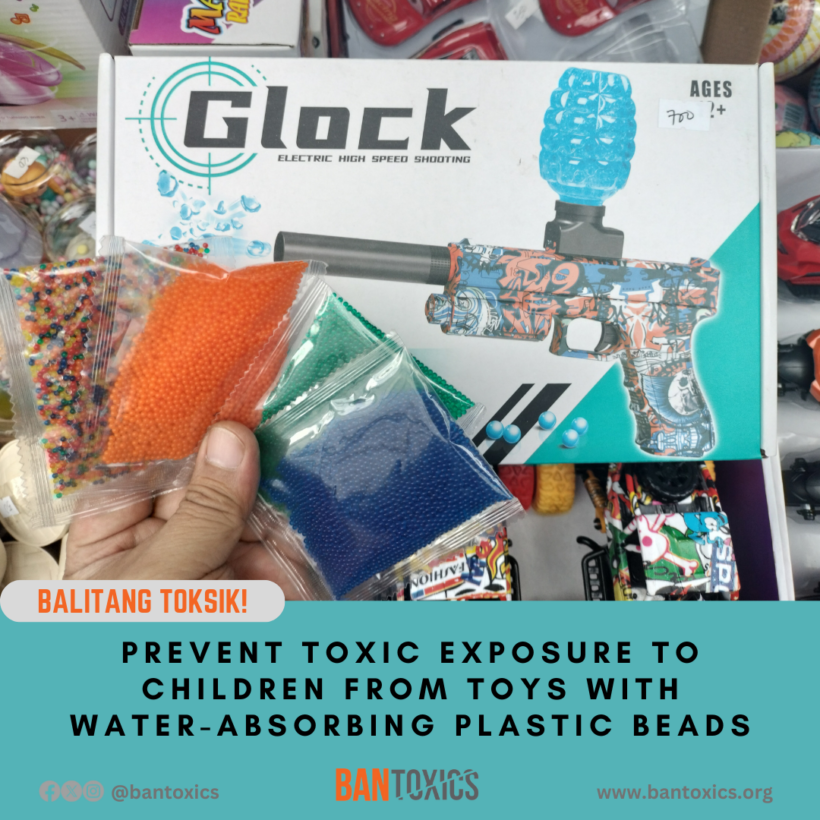Toxic watchdog group BAN Toxics raised concerns over the proliferation of battery-rechargeable gel blaster submachine gun toys using water-absorbing plastic beads or gel ammunition and similar toys.
“We express concern about the growing availability of gel blaster submachine gun toys using water beads or gel ammunition that expand to sizes ranging from 7 mm to 10 mm when soaked in water. We reiterate the dangers associated with plastic beads, particularly the risk of ingestion and choking, which can have severe consequences for infants and young children,” said Thony Dizon, Toxics Campaigner, BAN Toxics.
Commonly labeled as “non-toxic”, water beads contain a superabsorbent polymer and are indigestible. When ingested, the beads absorb the body’s fluids and can expand, leading to symptoms such as vomiting, dehydration, intestinal blockage, infection, and even death. Urgent surgical intervention may be necessary to extract the beads from the intestine.
In the United States, nearly 7,000 injuries related to ingesting water beads were documented between 2018 and 2022. Several countries have issued product recalls and safety warnings over the danger of water-expanding toys, including the U.S., Canada, Australia, and several European countries, including the United Kingdom, Spain, Poland, and Cyprus, to name a few.
The U.S. Consumer Product Safety Commission (CPSC) warned in 2023 that water beads may contain toxic chemicals that can leach into the body, including acrylamide, a known carcinogen. Just this March, it issued two new product safety warnings related to new evidence pointing to toxicity in some water beads products sold in Amazon.
While single ingestion might not cause harm, the chemical toxicity associated with certain brands of water beads may intensify with repeated exposure over time, leading to adverse health effects such as central nervous system issues and reduced fertility.

Child safety advocates have consistently highlighted concerns about this issue. “While the country has established a national standard for toys, enacted a law for safety labeling of toys, and issued related regulations to safeguard Filipino children, there is an urgent need to enhance the current regulatory framework to address the growing concerns of chemical toxicity, unregulated production and importation, and resulting environmental impact of toy plastic wastes and e-waste,” he added.
“According to UNEP data in 2014, the toy industry is the most plastic-intensive industry globally. It is high time for the country to strengthen its regulations and emphasize sustainable production and trade of plastic toys.” The Philippines primarily imports plastic toys from China, Vietnam, and Japan.
BAN Toxics has urged the Food and Drugs Administration (FDA), Department of Health (DOH), and the Department of Trade and Industry (DTI) to intensify post-market surveillance and conduct testing of water beads for chemical toxicity. It also advised parents and caregivers to supervise children when playing with water beads or refrain from purchasing these products if they have young children at home.
BAN Toxics is joining other environmental organizations in Ottawa, Canada from April 23-29 for the fourth session of the Intergovernmental Negotiation Committee (INC-4) to push for a legally binding global treaty aimed at reducing plastic pollution.
References:
https://www.cpsc.gov/Safety-Education/Safety-Education-Centers/Water-Beads-Information-
Center
https://wedocs.unep.org/bitstream/handle/20.500.11822/25302/Valuing_Plastic_ES.pdf










